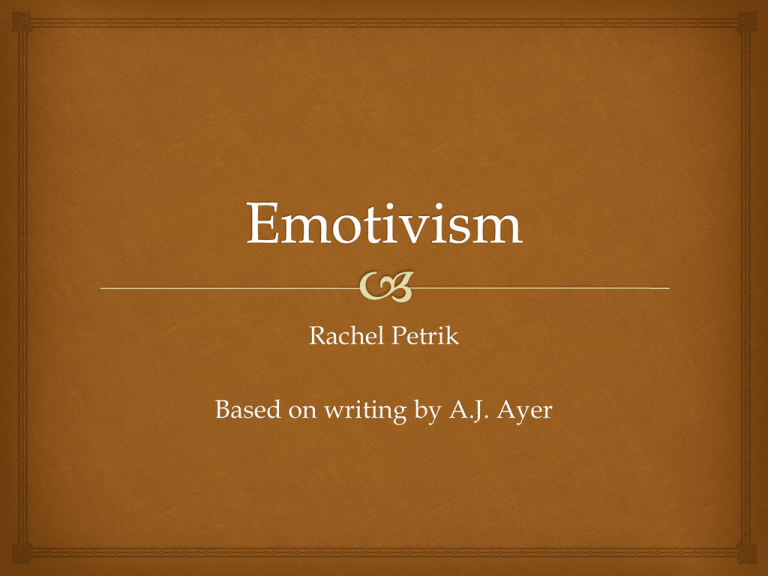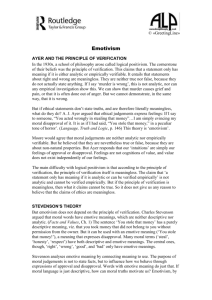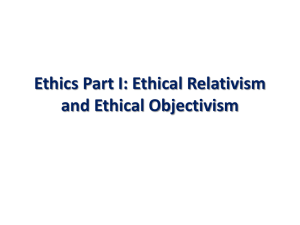Emotivism - Pegasus Cc Ucf
advertisement

Rachel Petrik Based on writing by A.J. Ayer A.J. Ayer 20th century English philosopher Wrote Language, Truth, and Logic in 1936 Established himself as leading English rep of Logical Positivism Logical Positivism Also called logical empiricism Empiricism= concepts originate in experience and propositions are justifiable only through experience View that scientific knowledge is the only kind of factual knowledge Metaphysical statements are not factual Emotivism Teaches that moral statements: Are meaningless Only express the speaker’s feelings about the issue Later emotivists added the idea that moral statements are used to influence another person’s thoughts and conduct by informing them of the speaker’s feelings Moral Statements Does not literally spell out the speaker’s feelings Expresses feelings, approval, or disapproval with emotive force Similar to connotation The overtones of feeling that a word arouses Separate from its literal meaning Is the difference between conveying information and appealing to feelings Ayer’s Ideas and Principles All meaningful statements are analytic (true by definition) or synthetic (deriving meaning from being empirically verifiable) Called the Verification Principle Ethical terms cannot be translated into statements of empirical fact The inability to translate into empirical fact makes them unverifiable Ethical statements are synthetic, not analytic Therefore, moral facts do not exist Cannot adopt a subjectivist or utilitarian analysis of ethical terms Utilitarian: rightness and goodness in terms of pleasure or happiness that result Subjectivist: approval of the action from a certain person or group Belongs to psychology or sociology, not philosophy These two views cannot be absolute To accept absolute view, recognize ethical concepts are irreducible to empirical concepts Therefore ethics do not derive from observation Instead from intellectual intuition No criterion to decide between conflicting intuitions Ethical concepts are pseudo-concepts Ethical or moral statement does not add factual content to a proposition Simply evincing moral approval or disapproval A proposition only containing ethical symbols has no factual meaning Evaluating Emotivism The verification principle appears to be synthetic, but not empirically verifiable There are moral disagreements Yet if there is no reason or fact behind moral statements, why do we argue? Seems possible to judge something to be morally wrong without having any emotional reaction to it Summary Emotivism is not a widely accepted theory today Most philosophers think moral statements are more than just expressions of feeling











